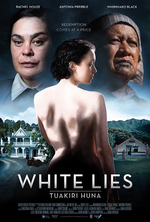Film Screening 26th April, 2014

The Hunt (Jagten)
7:00 PM, 26th April, 2014
- MA
- 116 mins
- 2012
- Thomas Vinterberg
- Tobias Lindholm, Thomas Vinterberg
- Mads Mikkelsen, Thomas Bo Larsen, Annika Wedderkopp, Lasse Fogelstrøm
It’s a tradition, it seems, for Danish males in this part of the world to mark their coming of age by joining the local deer hunt. But of course that’s not the ‘hunt’ the title has in mind.
Lucas (Mikkelsen) works in a local kindergarten where he gets on well with the children – too well, it turns out, for his own good. His favourite pupil, and best friend’s daughter, Klara (Wedderkopp) forms a crush on him, which he gently deflects. With the fierce but highly temporary fury of a small girl scorned, she tells a couple of lies about him to her parents – lies which mean nothing to her, copied from the ‘adult’ conversation of her older brother. The next morning she’s all but forgotten them. But Lucas finds himself under suspicion of child abuse.
He’s visited by various authorities, then by the police, although it’s soon clear that the police aren’t the real threat; of everyone in the town, they’re the ones least convinced by the thin evidence against him. His problem is not getting arrested but being able to relate to anyone else – his ex-wife, ex-girlfriend, ex-best-friend – or being able to so much as buy groceries without being molested.
I can’t see how a better film could have been made from these elements: slowly building tension and social ruin, one or two acts of shocking violence – and also one or two lovely acts of courage bringing sunlight into the film when we least expect it.
Henry Fitzgerald

White Lies (Tuakiri Huna)
9:06 PM, 26th April, 2014
- M
- 95 mins
- 2013
- Dana Rotberg
- Dana Rotberg
- Rachel House, Antonia Prebble, Whirimako Black, Nancy Brunning
The New Zealand studio that did so well with Whale Rider a decade ago has taken another novella by the same author: “Medicine Woman”, by Witi Ihimaera. I suppose the new title has the advantage of containing a double meaning.
The story (set in a gorgeous north-west part of the North Island around 1920) concerns Paraiti (Black), who roams the country working as a herbalist and midwife for tribal communities, out of sight of the law; because since 1907 the practice of tribal medicine has been illegal. One day she’s approached by Maraea (House), a Maori housekeeper who is looking for someone willing to perform a secret abortion for her wealthy mistress (Prebble), who is late in a pregnancy her husband doesn’t know about. And it turns out the pregnancy is not her only secret.
Obviously this can’t possibly be the crowd-pleaser Whale Rider was; its mood palette ranges from grim to melancholy. And it doesn’t seem to have been made by a particularly deft hand. Once inside the house it feels a little as though we’ve stepped inside a stage play – a play with some pacing difficulties, and with some lines of dialogue falling with a dull thud. But once given a chance it turns out to be an involving story – with strong central performances – and it’s certainly beautiful to look at.
Henry Fitzgerald